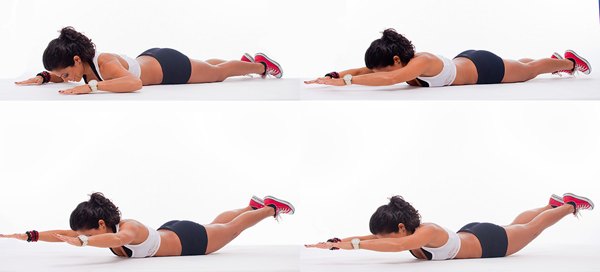The Truth About How Long Your Aerobic Workout Should Last
The World Health Organization recommends up to 300 minutes per week of aerobic workout for most adults. That works out to almost 45 minutes every single day. To put it simply, that’s terrible advice.
Effects Of Long Duration Aerobics
You see, long periods of steady aerobic training actually create a smaller, weaker heart and less powerful lungs. And it can set you up for just about every disease in the book.
Exercise The Right Way
Your risk of catching a cold or the flu or developing an infection goes down if you exercise the right way. But if you exercise for too long a period of time, your risk goes right back up. In fact, your risk shoots up higher than if you did nothing at all. In one study, researchers divided mice into two groups. One group rested in their cages. The other ran on little treadmills until they were exhausted. After three days, all the mice were exposed to the flu virus. The mice that ran until they were exhausted came down with the flu more often and had worse symptoms than the couch potato mice. In another experiment, mice were infected with the flu virus and then divided into three groups. The first group did no exercise. The second got a moderate amount of exercise each day. The third ran all out for two and a half hours a day. After a few days, 50% of the couch potatoes had died of the flu. Only 12% of the moderate exercisers died. An astounding 70% of the mice that ran for hours died of the flu!
Intense Workouts Suppress The Body’s Immune System
The problem is that intense, prolonged workouts suppress the body’s immune response for a period of time right after you finish exercising. And the longer and more intense your routine, the longer your immune system is down. And that means you’ll get sick more often. The reason for this is simple: your body interprets long periods of exercise as stress. This raises the levels of norepinephrine and cortisol. These stress hormones tend to suppress the immune system. They cause the numbers of immune cells (including white blood cells) to drop during and after the workout.
Use The PACE Program To Boost Your Immune System
It’s clear that no exercise and prolonged workouts are both bad for your health. But the anti-aging PACE program has immune-boosting power. It shifts the focus of your workout from how long you work to how efficiently you exert yourself. With PACE, your goal is to hit a peak of intensity in a short timeframe and then rest. You don’t have to do hours of cardio. You only need to work 12 minutes a day. You work long enough to boost your immune system, but not so long that you suppress it.
Listen To Your Body
You can choose any exercise you like. It could be as simple as going up and down the stairs, jumping rope, biking, or swimming. The key is to listen to your body. You should be panting at the end of each exertion period. You should not be taxed and exhausted through the whole workout.
Try This PACE Move
Here’s a sample PACE move you can try right now. All you need is your own body and some space.
Supermans:
Lie on the floor on your stomach with your arms extended in front of you and your legs extended behind you. Your chin should be slightly off the ground. Contract your back muscles and raise your arms and legs a few inches off the floor at the same time. Hold for three seconds, then lower your arms and legs back to the starting position. Repeat several times, until you are slightly winded.
Do three sets, taking time to recover completely between each set. And to make this truly a PACE workout, increase the intensity with each set, either by increasing the number of Supermans you do or by increasing the amount of time you hold the position. If you want to learn some other good PACE exercises, check my YouTube channel. I have more than 30 different exercises and a complete workout to help you get started. To Your Good Health, Al Sears, MD, CNS References: 1World Health Organization. “Physical Activity and Adults.” 2016. 2Murphy EA, Davis JM, Carmichael MD, et al. “Exercise stress increases susceptibility to influenza infection.” Brain Behav Immun. 2008;22(8):1152-5. 3Moreira A, Arsati F, Cury PR, et al. “Salivary immunoglobulin a response to a match in top-level Brazilian soccer players.” J Strength Cond Res. 2009;23(7):1968-73. Featured photo credit: fitapproach via creativecommons.org
